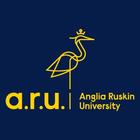- News and articles
- Find usIDP AustraliaIDP BahrainIDP BangladeshIDP CambodiaIDP CanadaIDP ChinaIDP EgyptIDP GhanaIDP Hong KongIDP IndiaIDP IndonesiaIDP IranIDP JordanIDP KenyaIDP KoreaIDP KuwaitIDP LebanonIDP MalaysiaIDP MauritiusIDP Middle EastIDP NepalIDP New ZealandIDP NigeriaIDP OmanIDP PakistanIDP PhilippinesIDP Saudi ArabiaIDP SingaporeIDP Sri LankaIDP Taiwan, ChinaIDP ThailandIDP TurkeyIDP UAEIDP VietnamIDP Corporate
- Social
- English
- Where we operate
- Courses
- Scholarships
- IELTS
- About IDP
- Student Essentials
- News and articles
- Find us
- Find us
- Find nearest IDP offices
- IDP Australia
- IDP Bahrain
- IDP Bangladesh
- IDP Cambodia
- IDP Canada
- IDP China
- IDP Egypt
- IDP Ghana
- IDP Hong Kong
- IDP India
- IDP Indonesia
- IDP Iran
- IDP Jordan
- IDP Kenya
- IDP Korea
- IDP Kuwait
- IDP Lebanon
- IDP Malaysia
- IDP Mauritius
- IDP Middle East
- IDP Nepal
- IDP New Zealand
- IDP Nigeria
- IDP Oman
- IDP Pakistan
- IDP Philippines
- IDP Saudi Arabia
- IDP Singapore
- IDP Sri Lanka
- IDP Taiwan, China
- IDP Thailand
- IDP Turkey
- IDP UAE
- IDP Vietnam
- IDP Corporate
- Social
- Language Switcher
- IDP Education /
- Colleges and Universities /
- United Kingdom /
- Anglia Ruskin University /
- MA/PgCert/PgDip Interior De...


Location
United Kingdom
Qualification
Masters Degree (Taught)
Fees
GBP18600
(2025)
Duration
1 Year(s)
Next intake
22 September 2025
Entry Score
6.5
IELTSCourse info
By studying MA Interior Design Innovation at ARU, you will develop the theoretical, practical, and leadership skills, and understanding and knowledge critical to creating dynamic and future forms of living, working, learning, and relaxing.
Youll gain a broad understanding of future and smart cities from the perspective of interior design, and tackle mental, physical, emotional, and social health and wellbeing issues in a global context by rethinking existing spaces, environments, and experiences. These spaces could include retail, exhibitions, entertainment, leisure, housing, hospitality, urban and human interactions, transport and mobility. As an Interior Design Innovation student in Cambridge, youll be able to work in a start-up environment and relaxed culture in which creativity and creative problem solving are valued, building strong relationships and freely exchanging thoughts and ideas.
Most importantly, youll receive support and guidance from our experienced staff who, as well as running their own studio practice, have worked with companies such as OMA, Fitch, Ford, Ramboll, Transport Research London, and Samsung.
The creative freedom you experience on the course will give you a variety of degree outputs based on design futuring (ideas and methods for design as an expanded ethical and professional practice), from the future of retail and leisure to the future of hospitality, housing, transport and mobility.
Talks from visiting lecturers and live briefs from industry are built into our course. These will focus on areas including smart cities, intelligent mobility, architecture, interactive digital technologies, future materials, retail design and branding, hospitality, and inclusive environments.
- Scholarships View all scholarships
- Internships
Entry requirements for Anglia Ruskin University
If English is not your first language you will be expected to demonstrate a certificated level of proficiency of at least IELTS 6.5 ( Academic level) or equivalent English Language qualification, as recognised by Anglia Ruskin University.
IELTS 6.5 with 5.5 in each element.
TOEFL iBT with 88 overall and a minimum of 17 in Writing and Listening, 18 in Reading and 20 in Speaking.
Application Deadline
The application deadline isn't available Speak to an IDP counsellor for more detailed information
Further information
If you aren't eligible for the above entry requirements, you might have a chance to explore pathway options at Anglia Ruskin University. If you want to find out more, speak to our counsellors.
THE World Ranking
501st / 1250
THE World Ranking118th / 130
Complete University guideWhat our students think
We’ve haven’t received any reviews for this institution yet.
Recommended for you
- THE World Ranking:93
- Masters Degree (Taught)
- Dubai , United Kingdom
- Next intake:09/2025
- Entry Score: IELTS 6.0
- AED150225 (2025)
- THE World Ranking:93
- Masters Degree (Taught)
- Dubai , United Kingdom
- Next intake:09/2025
- Entry Score: IELTS 6.0
- AED134467 (2025)
- THE World Ranking:160
- Masters Degree (Taught)
- Suzhou , United Kingdom
- Next intake:09/2025
- Entry Score: IELTS 6.5
- CNY100000 (2025)
- THE World Ranking:160
- Masters Degree (Taught)
- Suzhou , United Kingdom
- Next intake:09/2025
- Entry Score: IELTS 6.5
- CNY100000 (2025)
- THE World Ranking:160
- Masters Degree (Taught)
- Suzhou , United Kingdom
- Next intake:09/2025
- Entry Score: IELTS 6.5
- CNY100000 (2025)
- THE World Ranking:160
- Masters Degree (Taught)
- Suzhou , United Kingdom
- Next intake:09/2025
- Entry Score: IELTS 6.5
- CNY100000 (2025)
- THE World Ranking:401
- Masters Degree (Taught)
- Dubai , United Kingdom
- Next intake:09/2025
- Entry Score: IELTS 6.5
- AED95700 (2025)
- THE World Ranking:401
- Masters Degree (Taught)
- Dubai , United Kingdom
- Next intake:01/2026
- Entry Score: IELTS 6.5
- AED95700 (2025)
Your action plan
Step 1
Shortlist your courses
Choose the best three courses you’re most likely to pursue.
Step 2
Check your eligibility
Get an instant in-principle offer for courses with the IDP FastLane tag.
Step 3
Apply through IDP Live
Fill out the form once and use it to apply to multiple courses.
How does IDP FastLane work?
With the FastLane 'Offer in Principle', you'll know in minutes if you'll be accepted!
Select an institution and course
Create your academic profile
Submit your application for an 'Offer in Principle'
Your chosen institution(s) will send you a decision in minutes!
Get ready to apply with an expert counsellor




